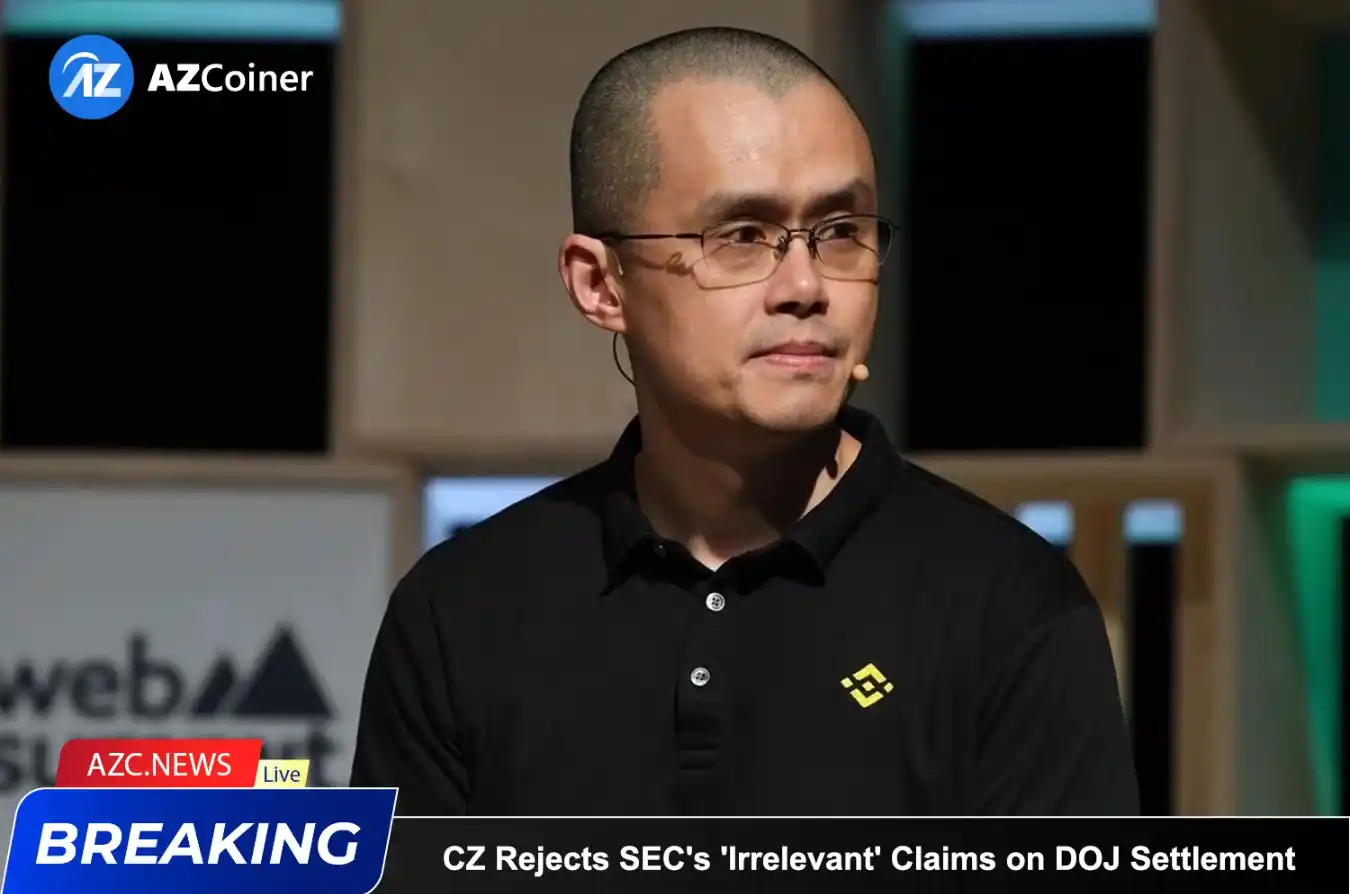Binance Holdings and former CEO Changpeng Zhao have responded to the U.S. Securities and Exchange Commission’s (SEC) notice of supplemental authority regarding the settlement between Binance and the U.S. Department of Justice (DOJ). The response, filed in the U.S. District Court for the District of Columbia, rebuts the SEC’s attempt to introduce the findings of the $4.3 billion guilty plea and settlement agreement with the DOJ into the ongoing SEC lawsuit.
Binance contends that the SEC’s actions are procedurally improper and impermissible. The SEC sought to leverage the DOJ settlement findings to strengthen its case against Binance Holdings and Changpeng Zhao.
However, in their response, the company argued that the SEC failed to establish the relevance of the DOJ resolutions to any of its purportedly ‘defective claims’ against them. The SEC initially charged Binance with 13 violations of securities laws on June 5, 2023, including the accusation that Zhao and Binance improperly controlled customer assets on Binance US and engaged in commingling or diverting customer assets.
The court documents, submitted on December 12, 2023, highlight Binance’s position that the SEC’s notice does not align with the claims made in its June 2023 lawsuit. The company dismissed the SEC’s notice as an impermissible supplemental brief that introduces new factual information and arguments without identifying any new legal “authority.” Binance emphasized that providing a judicial notice is not a valid method for amending the complaint and accused the SEC of attempting to benefit from other agencies’ resolutions, indicating a lack of notice regarding relevant regulatory authority on the SEC’s part.
Related: SEC Investigates Allegations of Continued Access to Binance US Funds by CZ
As the legal battle unfolds, questions arise about how the SEC will substantiate its claims against the crypto exchange concerning operating unregistered national securities exchanges, broker-dealers, and clearing agencies within the framework of potential amendments to U.S. securities laws.







